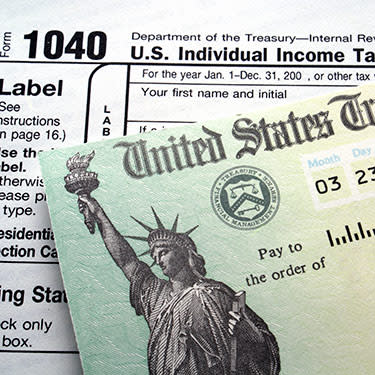Thinking About a Baby? 8 Ways to Get Your Finances Ready
Babyproof Your Money

Newborns don’t just come with that adorable new-baby smell and impossibly tiny toes — they also carry a hefty price tag. One of the most overwhelming challenges of parenthood is managing the many new costs, which seem to grow exponentially as your child does. If you’re planning to start a family, don’t panic. Here are the eight financial moves to make before becoming a parent.
Decide Where to Rein in Spending

Knowing what your numbers look like is necessary to the planning-for-baby process. Leave out nothing: List all your assets, including your bank accounts, investments, and property. Get a clear picture of your debt, from car payments and credit cards to student loans and your mortgage. That way you have a starting point for your new financial plan.
Next, take a look at your budget (or set one up if you don’t have one) to cut back on unnecessary expenses. Now is the time to trim the fat in your spending, so reassess the costs you take for granted — like your cable or cell phone bills — to make sure you’re getting the best deals.
If you need to curb your spending, make realistic cuts that you can sustain. Otherwise, you’ll likely give up on your cost-saving measures.
Devise a Debt Action Plan

With a baby on the way, it’s more important than ever to get serious about paying down your debt. It will only get harder to do as the expenses of raising a family pile up. Try:
The avalanche method
Kill your high-interest debt first — this is often credit card debt. Then continue down your list, tackling the highest interest rates first. This approach gives you the most bang for your buck financially.
The snowball method
Pay off your smallest debts first. Having a “win” under your belt early on can help give you the motivation you need to keep going.
You can also do a mix of the two strategies: Start with the snowball method and once you’re motivated by a zero balance, switch over to the avalanche. If you’re unsure of the best approach, you can also use an online calculator to help you strategize.
Build an Emergency Fund

An emergency fund is crucial no matter where you are in life, but it’s even more vital when you become a parent. Conventional wisdom says your cash cushion should be around two to three months’ worth of expenses. Calculate what that means for you (rent/mortgage, food, bills, transportation, etc.), and then figure out what, and how long, it will take to get there. A savings calculator can help.
Padding your emergency fund generally should be secondary to paying off debt, because your debt’s interest can cost you over the long haul. But if you don’t have anything in the coffers, then you should work on both at the same time.
Budget for Baby

Your budget isn’t written in stone; it should change as your life — and family — grows. Start crunching the numbers and adjusting as soon as you find out you’re expecting, or ideally, even earlier. You’ll need to add, at minimum, these basic expenses (based on national averages, which vary by location) into your new monthly budget:
Child care (at a daycare): About $972 a month
Disposable diapers: $30-$85 a month
Formula: $60-$100 a month
Clothing: $20-$50 a month
Note: If you want to save for college, you might consider a 529 college savings plan. For example, here is a hypothetical situation to help illustrate this point: To cover 25 percent of a public, four-year, in-state school, you’d need to save $109 a month starting when your child is born. (This assumes a 6 percent annual return and tuition rate of $201,386, which is what SavingforCollege.com predicts will be the average tuition in 18 years.)
Source: Babycenter.com
Save for the Big-Ticket Baby Items

There’s often a big up-front investment for new parents — babies require endless gear. You’re going to need a solid savings plan for those costs alone.
Depending on what’s right for your family, your up-front costs should include the following (these are based on the national average costs, and may vary according to your location or brand):
Crib: $120-$850
Changing table: $80-$250
Car seat: $80-$300
Stroller: $70-$900
Diaper bag: $25-$200
Playpen: $59-$150
Swing: $85-$120
High chair: $60-$250
Bottles: $50-$100
Monitor: $40-$60
Remember that people love to give baby gifts, so you may be able to register for many of these items and take them out of your budget.
Source: Babycenter.com
Pump HR for Information

If you’re expecting, or even just considering having kids soon, talk to HR as soon as possible. In order to fully understand what your leave will look like, find out:
The pay policy for parental leave
Whether you can combine your leave with paid time off
Your company’s long-term disability policy, and whether it can be applied to your leave
The benefits entitled to adoptive parents
How long your job is secure
What forms you need to fill out to take leave
Who is going to cover your duties while you are away
The options for transitioning back to work — can you work part-time or telecommute to on-ramp?
Finally, get a sense of the insurance changes that will come with parenthood. Find out when and how to add your baby to your health care plan, and see whether your insurance allows you to contribute to a Flexible Spending Account/Health Savings Account or a Dependent Care FSA.
Get Your Legal Ducks in a Row

No one likes to think about these sorts of things, but if you and your partner (if you have one) were to pass away, your estate would go to court for a lengthy process that can cost somewhere in the neighborhood of 5 percent of your assets.
To get your house in order, some of the documents you should consider having include a will, a power of attorney, and a health care proxy. This may save your heirs from having to make difficult decisions for you and help ensure that they’re taken care of: Wills clarify how you want to distribute your property after death, and they declare a legal guardian for your children. Power of attorney gives authority to another person to make decisions on your behalf about your property or finances. A health care proxy lays out who will make medical decisions for you if you can’t make them for yourself. Make sure you have both primary and contingent beneficiaries listed on all of these so that your wishes are as clear as possible.
You also should consider creating a living trust — a legal document that provides lifetime and after-death property management and lets you transfer assets easily. A living trust is a revocable trust, meaning it can be dissolved or changed at any time. Living trusts are especially helpful for parents of young children: You can include specific instructions within the trust, like how and when your assets will be transferred if you die before you children become legal adults (18 or 21, depending on the state).
Know Your Tax Breaks

Having a kid comes with tons of benefits — unending love and (hopefully) someone to take care of you in your golden years, to name a few. But don’t overlook the concrete tax benefits that you can get as well. These include:
$4,000 for an additional dependent exemption
$1,000 for the Child Tax Credit until the child turns 17
$3,000 per child or up to 20 percent of qualifying costs for the Child and Dependent Care Credit (see a list of requirements for qualification)
$13,400 for the Adoption Credit
Each deduction and credit has specific requirements, so be sure to double-check your eligibility. Fun fact: You can claim a full year’s worth of tax benefits even if your child is born on December 31.
Legal disclaimer: Any third-party resources or websites referenced above are not under our control. We cannot guarantee and are not responsible for the accuracy of the resources, websites, or any products or services available through such resources or websites. While we hope the information in this document is useful, it’s only intended to provide general education. It’s not legal, tax, or investment advice, and may not apply or be useful to your specific financial situation.
You Might Also Like:
How to Raise Rich (but Not Spoiled) Kids
Parenting Equally When You Both Work Full-Time
Opting Out Is Not Always a Choice

 Yahoo News
Yahoo News 
